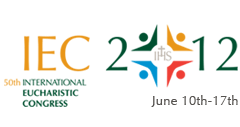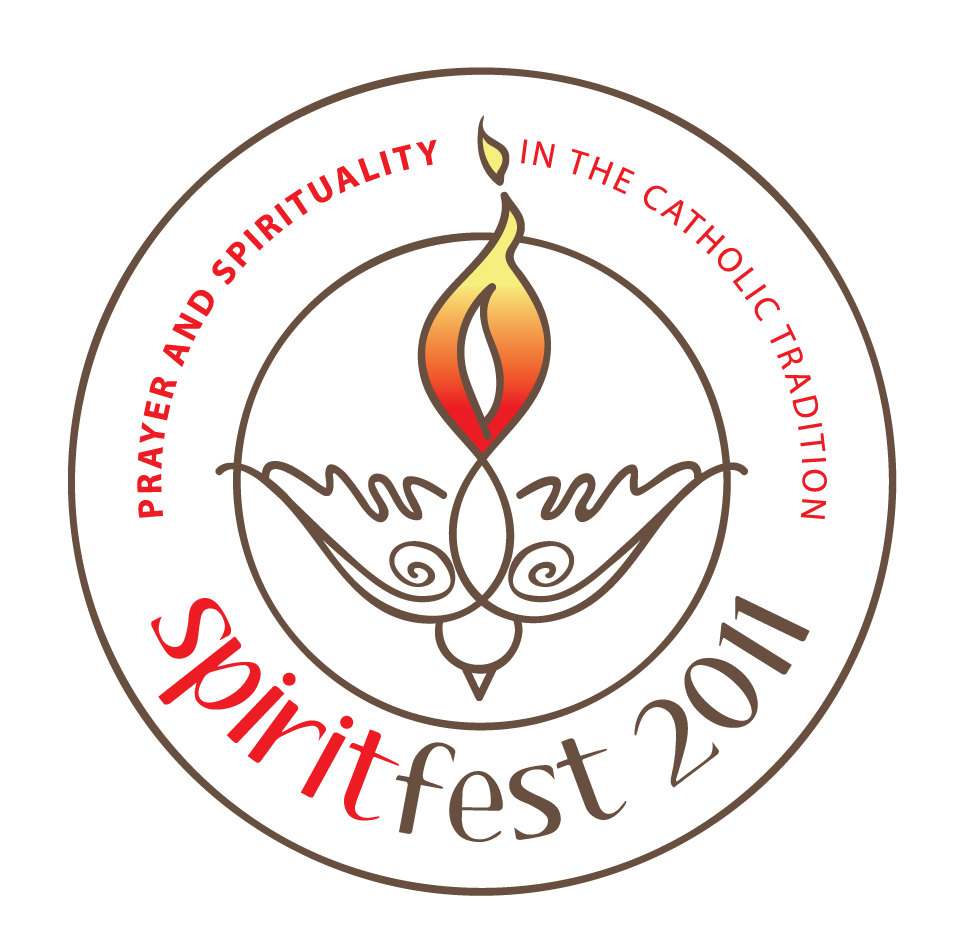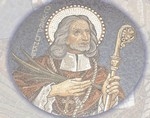HOMILY OF CARDINAL SEÁN BRADY
FOR THE
NATIONAL EUCHARISTIC CONGRESS
KNOCK 25 JUNE 2011
Cardinal Brady:
- “May this National Eucharistic Congress, and the International Congress next year, help to bring healing to the social, economic, spiritual and moral wounds that have so deeply afflicted our country and Church in recent times”.
- Bishops and priests anoint the sick before Mass in the Basilica: “May these days of grace bring healing, strength and peace to us all”.
- “My hope is that those who have drifted away from regular Mass will hear the simple request of Jesus: Do this in memory of me”.
- Thanks young people for attending and encourages use of social media to invite others to be part of Ireland’s preparations for the International Eucharistic Congress 2012.
- Welcomes Saint Joseph’s Young Priests Society to Knock and thanks the Society for its many years of support for seminarians.
- “Jesus is gentle and merciful and loving. He understands the weakness of the human condition. He reaches out to us with compassion and a love that heals. But Jesus is also challenging. He is not afraid to confront us about our laziness, our selfishness and our sin. He does so – He calls us to conversion – because these things hold us back from experiencing the fullness of life God wants us to have. This is the fullness of life that comes from our immersion in the Word of life and in the Eucharist – the Bread of Life”.
An important historical manuscript dating from around 800 AD tells us that, ‘Patrick took with him across the Shannon, fifty bells, fifty patens, fifty chalices, altar stones, books of the Law, books of the Gospels and left them in the New Places’, all of which remind us of the Eucharist.
Recently another bell was carried across the Shannon. It is the Eucharistic Congress Bell. It is on tour around Ireland, to wake us up to the coming of the Eucharistic Congress next year.
When Queen Elizabeth visited Ireland recently she was shown the Book of Kells. It contains a wealth of Eucharistic imagery. If President Obama had had a little more time in Ireland and visited the National Museum, he would probably have been shown the Ardagh Chalice and the Derrynaflan Chalice. They are two of Ireland’s most important national treasures. It is amazing how many of our national treasures are connected with the celebration of the Eucharist.
Last Sunday several hundred Catholic Christians from Kerala, in South India, gathered in Armagh to celebrate ‘the Holy Mass’ as they said. They did so in a language and ceremonial manner that probably goes back to Syria in the second century. So today, we come together to celebrate something sacred, ancient and venerable. We come to give thanks to God for the presence of the Risen Christ, in the Mass and in the Blessed Sacrament.
I welcome you with joy to this Holy Mass to mark the National Eucharistic Congress. It is part of our preparation for the 50th International Eucharistic Congress, due to be held in Dublin and throughout Ireland next June.
I must say that I felt immensely happy, three years ago in Quebec, when I heard Pope Benedict announce, ‘The next Eucharistic Congress will be held in Dublin.’
A Eucharistic Congress gathers people for a very special purpose: To increase our knowledge and understanding of the Blessed Eucharist and to promote our devotion to the Mass and Blessed Sacrament. The theme of this Congress is: ‘The Eucharist: Communion with Christ and with one another’.
I welcome the young people gathered here at Mary’s Shrine for your Annual Youth Festival. You have come to Knock to reflect and pray about a very interesting topic ‘Fuel for the Journey’. The journey is the journey of life and Jesus is the Bread of Life – fuel for the Journey of Life. You have listened and prayed in all-night adoration in the Blessed Sacrament Chapel. Tonight you will have a reconciliation service which will give a precious opportunity to go to Confession. Going to confession is precious because Confession is the means of restoring our friendship and communion with God which we lose by sin.
Young people I want to thank you for coming. Thank you for being such a great sign of hope among us. In you the Church in Ireland will always be young! In a few minutes we will commission the groups who will travel to World Youth Day. But I want to make a very practical request of all of you. I would ask each of you to send a text, or to tweet, or to post on a blog or to email at least one of your friends. Tell them about this gathering of friendship and faith here today. Invite them to become part of the preparations for the Congress in Dublin next year, using all the modern technological forms of communication of which we older people have little experience. I ask you to think about how you could make that digital network part of the theme of the Congress and the mission of the Church in Ireland in the years to come. Make it a place where the message of Jesus is shared and discussed and respected and lived. Make it a place which builds up the civilisation of love and promotes the integral development of the person and society. That it is my very practical challenge to each of you today.
I welcome St Joseph’s Young Priests Society here to Knock as you come to celebrate your annual pilgrimage. You come to celebrate so many years of generous support to generations of seminarians in this country and abroad. That support has been spiritual – the power of your prayers is mighty – both for present and past seminarians and for living and dead priests. Of course your support has also been financial and material, and this too is greatly appreciated. I suppose we could speak of your moral support, the support of encouragement and friendship which you give so gladly to our seminarians. Today we thank you. We thank God for you and for your spouses and families.
A special word of welcome also to those who are sick: earlier today we celebrated the sacrament of the anointing of the sick. It is a very powerful and moving sacrament. It offers real healing, strength and peace to those who carry the cross of Christ’s sufferings in their own body. As with Jesus, that suffering is not limited to physical pain. I am conscious of those here and at home who carry the cross of anxiety, or grief, or hurt or of anguish of different kinds. We live in stressful and anxious times. May these days of grace bring healing, strength and peace to us all: may this National Eucharistic Congress and the International Congress next year help to bring healing to the social, economic, spiritual and moral wounds that have so deeply afflicted our country and Church in recent times.
Healing is at the very heart of our Gospel reading today. The response of Jesus to the Centurion when he asks for healing for his servant is particularly consoling. Jesus responds immediately by saying, ‘I will come myself and cure him’. It is extraordinary to recall that in every sacrament of the Church, Jesus continues to respond to each of us with these same words: ‘I myself will come to you’. In every sacrament it is Jesus himself who acts, it is Jesus himself who is present. Renewing our appreciation of the real presence of Jesus in all the sacraments will be a key part of the renewal of the Church in Ireland.
I welcome those who have come to celebrate the Eucharistic Congress. It is worth noting that the beginnings of the Eucharistic Congresses, like the beginning of St Joseph’s Young Priests Society, can be traced to France in the nineteenth century. They can be traced to two outstanding women, Olivia Taaffe and Marie Tamisier. Both had great devotion to the Blessed Eucharist. Marie Tamisier first encouraged pilgrims to go to places like Ars and Paray-Le Monial. From there the Eucharistic Congresses, both National and International took off, and here we are preparing for the celebration of the 50th Congress.
This gathering in Knock is a sign that, for many people in Ireland, faith is important. But the question is: why is that faith not more visible and more audible? Lack of faith is not new. There is a lack of faith in both the first reading and in today’s Gospel. Sarah laughs in disbelief at the idea that she was going to have a child, at her age. But her laughter of disbelief is turned into laughter of joy. She does indeed bear a son and she named him Isaac, a word which means laughter. We too live in an age where faith itself is increasingly mocked and ridiculed.
Yet in the Gospel Jesus praises, not the cynics and the mockers, but the faith of the Centurion. Jesus was astonished at what the Centurion said. The army officer was Roman, not Jewish. Jesus was amazed at the faith of a man who believed that a word from Him would be enough to heal his servant. ‘Nowhere in Israel have I found faith like this.’ When you think of it, that is a huge compliment. Is he saying that this man has greater faith than Mary his mother, or Joseph? But Jesus also saw the humility of the man. In spite of lots of reasons to feel proud and superior, the Centurion says to the poor carpenter from Nazareth, ‘I am not worthy to have you under my roof.’ It took courage to admit that he was powerless despite all his appearance of power.
At present the invitation to Holy Communion in the Mass is: ‘Lord I am not worthy to receive you but only say the word and I shall be healed.’ I am pleased to advise you that from this November in the New Edition of the Roman Missal, the invitation will be: ‘Lord I am not worthy that you should enter under my roof but only say the word and my soul shall be healed.’
It is a simple enough change but one that is more faithful to the actual words of the Centurion. I hope that when we get used to this new formula, it will enhance our sharing in the Mass. That is the only reason that Pope John Paul II asked for the text of the Mass to be revised in the first place. I think it will remind us of the faith and humility of that Roman officer. Faith and humility are essential if our Holy Communions are to help us.
I would hope that those sincere and earnest words of the Centurion might stir memories of other people of immense faith in our own Irish tradition. I would hope they would remind us of the faith of artists, like the maker of the Ardagh Chalice for example, who created so much beauty for the worship of the Eucharist.
Those words could also remind us of the humble and unknown monks who produced the majestic Book of Kells and all others who translate and adorn the words of God in beautiful books to give praise and glory to God.
But the courage of the Centurion could also evoke memories of all who had to take risks to remain faithful to the Mass. I am thinking of people like Cardinal Van Thuan of Vietnam who had bread and wine smuggled in to his lonely prison cell so that he could celebrate Mass. The Centurion may also remind us of people nearer home who in Penal Times braved the elements to gather around Mass Rocks on windswept hills or snow-clad valleys to pray and practise their religion.
Jesus not only applauded the faith of the Roman Centurion, he went on to give a gentle warning to his own people. They must not take things for granted and presume that because they are the chosen people they are automatically saved.
And what about us the new people of God who enjoy the privilege of sitting at the Eucharistic banquet? Are we in danger of believing that as long as we are baptised and do no harm the banquet of heaven will be ours? We must heed the warning of Jesus in the Gospel too.
Jesus is gentle and merciful and loving. He understands the weakness of the human condition. He reaches out to us with compassion and a love that heals. But Jesus is also challenging. He is not afraid to confront us about our laziness, our selfishness and our sin. He does so – he calls us to conversion – because these things hold us back from experiencing the fullness of life God wants us to have. This is the fullness of life that comes from our immersion in the Word of life and in the Eucharist – the Bread of Life.
Today, Ireland continues to have one of the highest rates of participation at weekly Mass in Europe. The numbers attending daily Mass are also relatively high. So the suggestion that the Mass and Christian faith are no longer important is certainly exaggerated. Yet it is also true that there has been a significant decline in Sunday Mass attendance over the last three decades.
This year of preparation for the International Congress is a time to look again at the significance of the weekly Sunday Mass. My hope is that the Congress will encourage those who no longer participate in weekly Sunday Mass to reflect again on the call Christ makes to them to be part of the community of faith, living and celebrating communion with Christ and with one another. My hope is that amidst the hurt or painful memories or simply the busyness or distraction that holds some people back from attending Sunday Mass, they will hear again, not my voice, but the voice of Jesus himself calling them in love and friendship to rediscover the rich treasure of the Eucharist in their lives.
We come to Knock to place all of this under the protection of Mary; in much the same way as Mary was asked to intercede at the Wedding Feast of Cana. We too can honestly say that we have no wine in the sense that we sometimes lack the joyful trust in the power of God to transform our miserable efforts into a new creation. At Cana, Mary said, “Do whatever he tells you.” In the upper room Jesus in turn said, “Do this in memory of me.” My hope is that in this year of preparation those who have drifted away from regular participation in the Mass will hear with fresh hearts the simple request of Jesus to all of us: “Do this in memory of me”.
I also hope anyone returning to the regular practice of their faith will discover a community that in recent years has recognised more clearly its faults and failings. I hope they will encounter a humble community, one of genuine Christian service seeking to be faithful to the Gospel and to heal the wounds of the past.
The cure of the Certurion’s servant does more than show up the lack of faith in those who might be expected to have faith. It is also the prelude to a whole series of fulfilments of hope. Jesus cast out devils and he cured all who were sick. The last words of the Gospel point to Jesus as the Servant of God who himself bore our infirmities and cured our sickness.
This is a time for renewal in the Church in Ireland. That renewal has to begin in union with Christ, the Suffering Servant. It has to involve all of us sitting down and listening with the help of the Holy Spirit to His Word to discover what sort of Church He wants the Church to be at this time, in this place. One thing is certain. We should always be and always have been a humble servant Church. We should not expect to be greater than our Master who came to serve, and who died a shameful painful death for us. We are here to wash people’s feet in imitation of the Lord of love.
We can take heart from Sarah. Because she had lived so long where being childless was a real humiliation, she had given up hope. She laughed in disbelief at the outrageous promise of God. But God had the last laugh – making laughter for her. She, like the Centurion, had to accept that on her own she could do nothing, but that nothing is impossible for God.
But it is not just a matter of sitting down or indeed of sitting around waiting for God to do something. That is why the Second Reading is so important. We are all members of Christ’s Body. Each of us has our part to play. Each of us has a part to play in renewing our own faith in Christ and in sharing that faith with others.
At the heart of all of this will be what is called the New Evangelisation. It is a new way of announcing of the Good News – not new in content – but new in fervour and in faith. It is a new commitment to making known the message of joy and hope for all humankind that is celebrated and made present in every Eucharist.
Today, as through the centuries, the Eucharist constantly invites us to go back to the Upper Room. It invites us to be ‘reborn’ as ‘God’s family’, ‘one heart and one soul’ in communion with Christ and with one another. In that Upper Room we discover in the Eucharist the very heartbeat of Jesus Christ, bringing His very life and presence to the ends of the earth.
In making the simple request, ‘Do this in memory of me’, He invites us to recognise what He has done for us. He loved us to the end, to the extent of remaining with us in every time and place in the Eucharist. This is the incredible gift He has left us. This is the promise He has made us. Blessed are those who believe that the promise that has been made to us in this and every Eucharist will be fulfilled. Amen.









